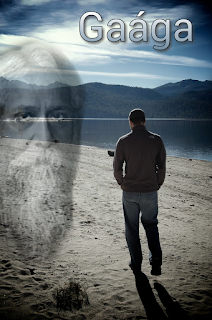ေရးသား 🔰 လူထုဝဏၰ |
အာလာဝလ္သည္ ၁၇ ရာစု ထင္ရွားေသာ အာရ္ကာန္ နန္းတြင္းစာဆိုပညာရိွ တစ္ဦး ျဖစ္သည္။ ခရစ္ႏွစ္ ၁၆၀၇ ခုခန႔္တြင္ ဖရီဒ္ပူရ္ ခ႐ိုင္၊ ဖေတအာဘာသ္ [ Fatwabad ]ရိွ ဂ်လာလ္အဘာသ္ ရြာ၌ ဖြားျမင္ခဲ့သည္။ အမည္ရင္းမွာ ဆယာဒ္ရွား အာလာဝလ္ [Sayed Shah Alawal] ျဖစ္သည္။ ဖခင္ျဖစ္သူမွာ ဖေတအာဘာသ္ ဝန္အုပ္ Majlis Kutub ၏ အတြင္းဝန္ တစ္ပါးျဖစ္သည္။ ပညာတတ္ ျမင့္ျမတ္ေသာ မ်ဳိး႐ိုးမွ ဆင္းသက္လာသည္။ အာလာဝလ္သည္ သကၠတ၊ ဘဂၤလာ၊ အာရဗီ၊ ပါရ္ဆီ သာသာမ်ား သင္ယူတတ္ေျမာက္ခဲ့သည္။ စစ္ေသနဂၤပညာႏွင့္ အႏုပညာဂီတကိုလည္း တတ္ကြၽမ္းသည္။
တစ္ေန႔တြင္ အာလာဝလ္ႏွင့္ ခမည္းေတာ္တို႔သည္ စစ္တေကာင္းၿမိဳ႕သို႔ ေရေၾကာင္းမွ ရြက္ေလွျဖင့္ ခရီးထြက္လာရာ ေပၚတိုဂီ ပင္လယ္ဓားျပမ်ား၏ တိုက္ခိုက္ျခင္းကို ခံရခဲ့ေလသည္။ ခမည္းေတာ္သည္ ဓားျပမ်ား၏ တိုက္ခိုက္ၾကမ္းၾကဳတ္မႈ၌ က်ဆံုးခဲ့သည္။ ဒဏ္ျပင္းထန္စြာရရိွေနသာ အာလာဝလ္ကိုမူ အက်ဥ္းသားအျဖစ္ အာရ္ကာန္သို႔ ဖမ္းဆီး ေခၚေဆာင္ယူလာခဲ့သည္။ အစဦးတြင္ သူသည္ အခ်္ဝါ (Ashwar) ဘြဲ႕ႏွင့္ ဘုရင့္ ျမင္းထိန္းေတာ္ (သို႔) သက္ေတာ္ေစာင့္ အျဖစ္ အမႉးထမ္းရသည္။ ၿပီးေနာက္ ဂီတႏွင့္ ဇာတ္ဝတၳဳမ်ား သင္ၾကားေရး တာဝန္ခန္႔အပ္ခဲ့သည္။
သူ၏ ကဗ်ာဉာဏဗလ ထက္သန္သည့္ ဂုဏ္သတင္းသည္ အခ်ိန္အနည္းငယ္အတြင္း နန္းတြင္းအထိ ပ်ံ႕ႏွံ႔လာ၍ သူ႕ ကဗ်ာဉာဏ္စြမ္းရည္ကို ေျမာက္ဦး မင္းဆက္ သိရီ စႁႏၵာ သုဓမၼမင္း (၁၆၄၅-၁၆၅၂) ၏ အတြင္းဝန္ ျဖစ္ေသာ စူလိုက္မာန္ က အသိအမွတ္ျပဳခဲ့ၿပီး ေလးစားဂုဏ္ျပဳလာေလသည္။ သုဓမၼာမင္း၏ ႏွမေတာ္၏ ေမြးစားသားျဖစ္ေသာ အတြင္းဝန္ခ်ဳပ္ မဂံ တဂိုး [Magan Thakur/ Magana]က သူ႕အား အထူးခ်ီးေျမႇာက္ကာ နန္းတြင္း ရာထူးေနရာတစ္ခုကို ေပးအပ္ခဲ့သည္။ အာလာဝလ္သည္ အျခား နန္းတြင္းသူနန္းတြင္းသားမ်ားျဖစ္ေသာ ဆယာဒ္ မူးဆာ(အတြင္းဝန္)၊ စူလိုင္မာန္(ဝန္အုပ္)၊ မိုဟာမတ္ခါန္ (စစ္ေသနာပတိခ်ဳပ္) ႏွင့္ မဂ်ီလီစ္ နဝရာဇ္ (ဘ႑ာစိုး) စသည္ကဲ့သို႔ နန္းေတာ္၌ အခါမေရြး ခံစားခြင့္ ရရိွခဲ့ သည္။
၁၆၅၉ ခုႏွစ္တြင္ ဘုရင္ ရွားဂ်ာဟန္း၏ သားေတာ္ ရွား႐ႈဇာ မင္းသားသည္ အေပါင္းအေဖာ္ေနာက္လိုက္ႏွင့္ တကြ အာရ္ကာန္သို႔ ခိုလံႈခ့ဲသည္။ သို႔ေသာ္ အိမ္ရွင္အစိုးရက သစၥာေဖာက္၍ သူႏွင့္တကြ မိသားစု အားလံုး ကို လုပ္ႀကံသတ္ျဖတ္သည့္အေရး ေပၚေပါက္ခဲ့သည္။ အာလာဝလ္ကို ရွား႐ႈဇာ မင္းသားအား လြတ္ေျမာက္ေရးကို ႀကံစည္ခဲ့သည္ဟု စြပ္စြဲကာ ေထာင္ ႏွစ္လနီးပါး က်ခံရသည္။ အလုပ္ၾကမ္းျဖင့္ ဒဏ္ခတ္ခဲ့သည္။ ပိုင္ဆိုင္မႈအားလံုးကို သိမ္းပိုက္ခဲ့သည္။ နန္းတြင္းေထာက္ပံ့မႈကိုလည္း ႏွစ္ၾကာရွည္ ျဖတ္ေတာက္ခဲ့သည္။ ထို႔ေၾကာင့္ ဆယ္စုႏွစ္ တစ္ခုခန္႔ မိသားစု စားဝတ္ေနေရး က်ပ္တည္းျခင္းကို ဆိုးဆိုးဝါးဝါး ျဖတ္သန္းခဲ့ရသည္။ အလုပ္ၾကမ္းဒဏ္မွ လြတ္ေအာင္ ေငြဒဏ္ကို အာရ္ကာန္ အတြင္းဝန္ သို႔မဟုတ္ ကာဇီ တစ္ပါးျဖစ္ေသာ သူ႔ ပီရ္ဆာပ္သခင္ စယာဒ္မာဆြတ္္ ရွား (ရဟမေသြ) က ကူညီသျဖင့္ ဒဏ္မွခ်မ္းသာခြင့္ ရခဲ့ေလသည္။ ထိုမွစ၍ သူ႕ထံ၌ ခိုလံႈ႕ခဲ့သည္။ ေနာက္ဆံုး ၌ သူ႕ပီရ္သခင္က သူ႕အား “ကြာဒရီယာ တိုရီကာ” ခိလာဖတ္ ဘြဲ႕ကို ခ်ီးျမင့္ခဲ့ေလသည္။
သူ႕ထင္ရွားေသာ စာေပလက္ရာမ်ားမွာ Ragtalnama ၊ Padmavati (၁၆၄၈)၊ Satimayana-Lor-Chandrani (၁၆၅၉)၊ Saptapaykar (၁၆၆၅)၊ Saifulmuluk Badiuzzamal (၁၆၆၉) ႏွင့္ Sikandarnama (၁၆၇၃) တို႔ျဖစ္ၾကသည္။
kahite aneka katha du0kha aipanara /
rosange asiya hailun raja- achoyara //
bahu musalmana saba rosange baisanta /
sadacari kulina pa00ita gu0avanta //
sabe k0pa karenta sambha0a bahutara /
alima olama bali karenta adara //
mukhya pa0esvarira amatya mahajana /
satyavadi jitendriya0hakura Magana //
bhagyodaya haila mora vidhi parasana /
du0kha nasa hetu tana sa0geta milana //
aneka adara kari bahula sammana /
satafa po0anta anna vastra dana //
madhura alape vasa haila mora mana /
tana gu0a sutra haila grivate bandhana //
Ragtalnama သည္ ေတးဂီတေပၚ ေရးသားသည့္ သူ၏ အေစာဆံုး ကဗ်ာရွည္ ျဖစ္ၿပီး အျခား ကဗ်ာ စာအုပ္မ်ားမွာ ဘာသာျပန္ျခင္း၊ ေက်ာ႐ိုးယူျခင္းတို႔ျဖစ္သည္။ သူ႕ဘာသာျပန္ ကဗ်ာမ်ားမွာ Padmavati သည္ မာလိခ္ မိုဟာမတ္ ဂ်ယာစီ [Malik Mohammad Zayasi] ေရးသားသည့္ ဟီႏၵီ ဝတၱဳ Padmavat ကို အေျခခံထား၍ သူ႕ အေျပာက္ေျမာက္ဆံုး လက္ရာအျဖစ္ ပညာရွင္မ်ားက သတ္မွတ္ၾကသည္။ မူရင္း ဇာတ္လမ္းမွာ စီဏ္ဟလာ မင္းသားႏွင့္ ခ်ီတိုရ္ ဘုရင္မ အေၾကာင္းကို စာပန္းခ်ီ ေရးဖြဲ႕ထားျခင္းျဖစ္သည္။
Satimayana-Lor-Chandrani သည္ အာရ္ကာန္ နန္းတြင္းစာဆို ဒိုလတ္ကာဇီ၏ မၿပီးဆံုးႏိုင္ခဲ့ေသာ ကဗ်ာရွည္ကို အၿပီးသတ္ ေရးသားေပးခဲ့ျခင္းျဖစ္သည္။ ထို႔ေၾကာင့္ ဤဝတၱဳ၏ ပထမပိုင္းသည္ စာဆိုေတာ္ ဒိုလတ္ကာဇီက ေရးသားခဲ့ၿပီး ေနာက္ဆံုးအပိုင္းကိုသာ အာလာဝလ္က ေရးသားခဲ့ျခင္းျဖစ္သည္။
katheka apana du0kha kahimu prakasi /
raja asoyara hainu rosa0gete asi //
srimanta choleman maha gu0avanta /
prra desi gu0i paile adara po0anta //
maha hara0ita haila paiya ahmare /
anna vastra dane nitya po0anta sadare //
Tohfa တိုဖာ သည္ ယူစြဖ္ ေရးသားသည့္ ပါရွင္လကၤာ Tuhuf-e-Nasaih ကို ေက်ာ့႐ိုးယူျခင္း ျဖစ္သည္။ Saifulmuluk Badiuzzamal လကၤာသည္လည္း စယာဒ္မဆြတ္၏ ပန္းၾကားခ်က္အရ ပါရွင္ဝတၱဳေပၚ အေျခခံ၍ ေရးသားခဲ့သည္။ သူ႕စာေပလက္ရာ အမ်ားစုသည္ အခ်စ္ေမတၱာ ဇာတ္လမ္းမ်ားျဖစ္ၿပီး တိုဖာမွာမူ စံုေတာက္ဇာတ္လမ္း/ နိတီက်မ္းပင္ျဖစ္သည္။ ယင္းကို စႁႏၵာ သုဓမၼာမင္း၏ ေတာင္းဆိုခ်က္အရ ေရးသား ခဲ့ျခင္းျဖစ္သည္။
သူ႕ဘဝေနာက္ဆံုး အခ်ိန္မ်ားကို အာရ္ကာန္ အတြင္းဝန္ နဝရာဇ္ထံေတာ္၌ ခစားရင္း ကုန္ဆံုးခဲ့ေလသည္။ သူ႕ထံ၌ ခစားရင္း Shikondernom (Ahmed Sharif အဆိုအရ) သို႔မဟုတ္ Dara-Shekondar (Sukumar Sen အဆိုအရ) ကို Eskander-nama ပါရွင္စာအုပ္မွ ဘာသာျပန္ေရးသားခဲ့သည္။ယင္းသည္ သူ၏ ေနာက္ဆံုး စာအုပ္ျဖစ္သည္။ သက္ေတာ္ ၆၆-၆၇ ႏွစ္တြင္ ကြယ္လြန္ခဲ့ေလသည္။
စာဆို အာလာဝလ္၏ ကဗ်ာလကၤာအဖြဲ႕မ်ားသည္ ထိုေခတ္ နန္းတြင္း နန္းမူနန္းရာ ဓေလ့ထံုးစံမ်ား၊ ဘုရင္မင္းျမတ္ ဘုန္းေတာ္မ်ားႏွင့္ ကိုယ္ေရးအတၱဳပၸတၱိကို ထင္ဟပ္ ေရးဖြဲ႕ထားသည္။ သူ႕ ကဗ်ာလကၤာမ်ား သည္ စိတ္လႈပ္ရွားခံစားမႈကို ျဖစ္ေပၚေစေသာ ရသႏွင့္ သုတမ်ား စံုလင္ေနသျဖင့္ သူ႕ကို “ပ႑ိတ ကဝီ’ [Pandit Kavi] ဘြဲ႕ႏွင့္ ဂုဏ္ျပဳျခင္းခံရသည္။ သူသည္ ဘဝတသက္တာ၊ ဉာဏဗလ၊ ကာယဗလ တို႔ကို ရင္းႏီွးကာ အာရ္ကာန္ စာေပေလာက တိုးတက္ေရးကို သက္ဆံုးတုိင္ ႀကိဳးပမ္းခဲ့သည္။
ယေန႔ အာရ္ကာန္ကမူ သူ႔ကို ဘာသာေရးခြဲျခားဆက္ဆံလ်က္ ေမ့ေလ်ာ့ထားေသာ္လည္း ကမ႓ာကမူ ယေန႔တိုင္ ေအာက္ေမ့ေနဆဲျဖစ္သည္။ သူ႕ကို ဂုဏ္ျပဳသည့္အားျဖင့္ ဘဂၤလားေဒ့ရွ္ႏိုင္ငံ၌ အာလာဝလ္ စာေပဆုကို ႏွစ္စဥ္ ခ်ီးျမႇင့္ေနသည္။
ကိုးကား-
၁။ Wakil Ahmed. "Alaol". Asiatic Society of Bangladesh.Retrieved: 2014-01-13
၂။ M A Tahir Ba Tha, Islamic Review, 1966
၃။ Alaol Wiki
၄။ Padmavati by Alaol
၅။ Amaresh Datta: Encyclopedia of Indian literature, volume one, pp-128





